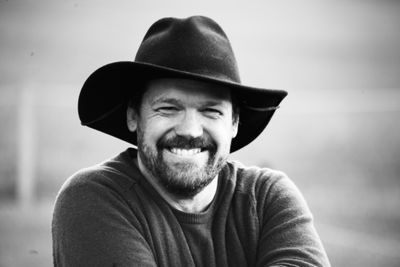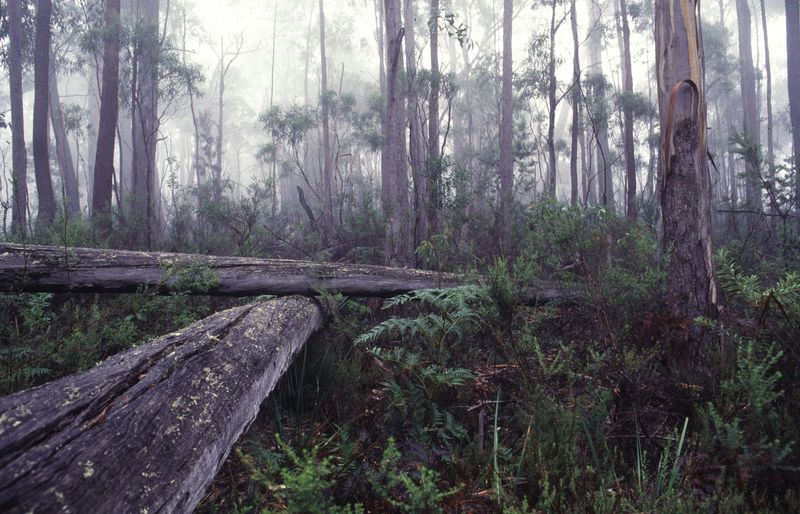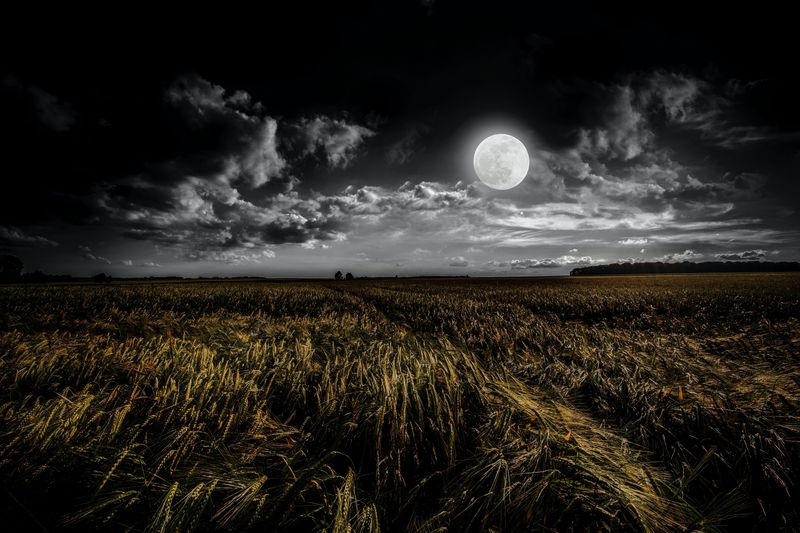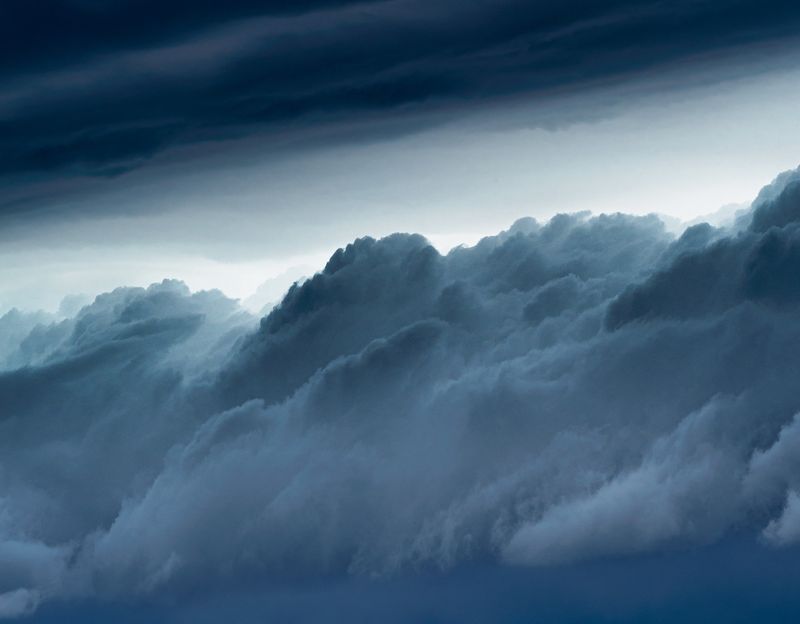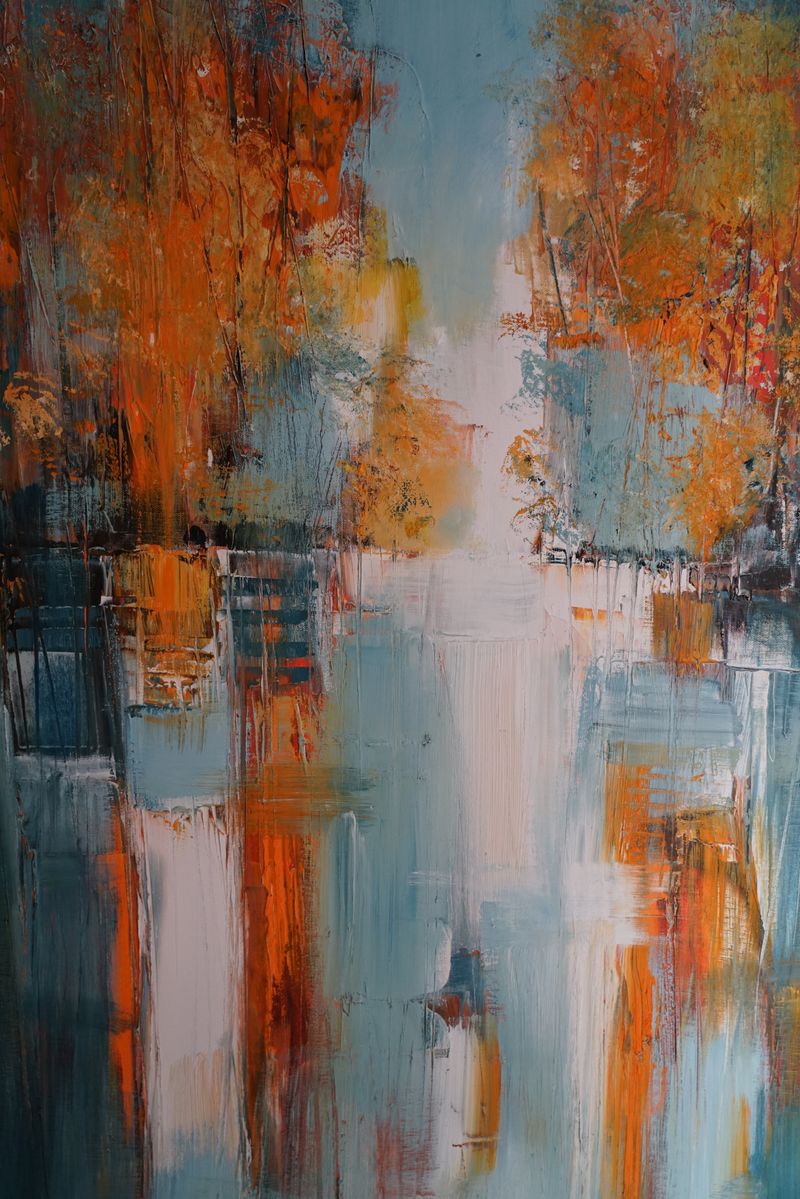Exploring my watershed is proving harder than expected. Not physically so; I’ve been able to take myself up the first of these scrubby creek-lines in some way or another.
Hiding my bike underneath a concrete bridge and working my way upstream—the North-West Bay River, a sultry afternoon, a thunderstorm building somewhere—to see where the streambed comes from, the kind of forest that lives up there, away from the roads.
Dropping out of sight over a steep bank to settle for a while in the shade of tree-ferns, listening to water gurgle through a mess of fallen logs, watching the bush spiders and the wrens. A creek I still have not been able to name, though I have my map-learned guesses. Somewhere I pulled off the road after a shopping trip that took far too long and addled my brain.
Taking off my shoes and shirt to stand a moment with the Allens Rivulet rushing over my shins, and lying for a blessed while on a rock shelf in the sun, the remains of a concrete weir for a headrest. Out of sight of the farms, within earshot of grazing horses. A breeze in the eucalypt canopy. Cockatoos briefly overhead.
I am learning things, though not things I can easily define. As I get fitter, I plan to investigate higher toward the source-ground, steeper country of the Wellington Range from which I may be able to see long distances. But I am having trouble with a fundamental malaise.
On some simple level, its hard to want to spend time in these forested valleys. Its not just the ubiquitous rubbish and the badly-made concrete interventions to the waterways. Or the tangle of blackberry that stops you and forces a change of approach, virtually every bank you descend.
That’s a part of it, something I anticipated and can work with. But this is something I didn’t entirely prepare for, and which I find hard to name. Its something like the loneliness of these bush places.
In my experience, being removed from the action of human community does not make for a lonely place. Many wild and remote places I’ve been fairly come rushing to meet you, thick with the presence of creatures and communities. These can be confronting in their wild austerity and alien difference—communities of scoparia and snow gum and cushion plant and hard white quartz soil and frigid tarns, currawongs and scrub wrens and scudding cloud, perhaps. But they are vivid and at home and settled.
These forested gullies and streams feel, in contrast, actually lonely.
Its hard to be sure about this, of course. It could easily be my own psychology projected onto a community of life that I don’t understand, fail to see busily doing its thing. And there's always the possibility of making too much of our individualised intuitions.
So I wonder if others feel this here. Like something or someone has left and not come back. Some kind of abandonment.
If so, I think that something/someone may be us. People. I don’t know enough about human patterns of habitation before colonisation to say much about it, but I suspect that these riverine forests, not far from the coasts, may have been used to human company for some 40,000 years or more. People. Walking the banks, wading the shallows, gathering limbs and making camp on a sand bank, sipping the water, cutting trails, talking among the trees at night and making that lovely flicker of firelight that humans make.
As I’ve heard First Australians say, in differing contexts and by different speakers, ‘People need Country and Country needs People.’ Its such a simple truth, but so foreign to the colonisers' culture to which I belong.
And from the little I know about how First Tasmanians, the Palawa Nation, looked after country, and still do, in far smaller numbers, these valleys should not look like they do at present. The bush is full of fallen sticks and limbs and dead brush, building up at the bases of trees, piling up into flammable mounds and layers that would burn very hot, should they burn. Which, eventually, they will.
This material should be being gathered, night after night, for campfires, and when there’s too much for that, gently burnt in place on cool days when the soil is moist and the wind is soft.1
Yes, country needs people. We evolved together, us and land. And this land on the rural edges feels difficult to be in for much length of time, probably because it is neglected. We don’t go there. We pass through in unprecedented numbers, at speeds only machines can achieve, but we barely enter, much less tend to it. In all my wanderings so far, up streams and riverbanks, I have yet to see a person who is there just in order to be there.
And so I am having trouble. Trouble with the atmosphere of the bush, with wanting to be there. I think of how different a kind of exploration this is from the outdoor sports approach, something I loved when I was younger, which simply would not choose this country for its wilderness experience.
But this is the country on which I am living out my life. It deserves my care, something I am utterly unsure about how to give, but committed to nonetheless. This lonely and tentative acquaintance-making is, of course, only the tiniest beginning.
Already, I am going to need a different way of doing this, of seeing. A different way of coming in.
.
- Jason Andrew Smith, Patrula Nayri, spoken, cultural burning workshop, Cradoc, Tasmania.
Image: Andy Wildman
Comments? If you would like to say something about this post, I'd love that. For personal reasons, I don't enable comments on the blog site, but please feel free to write to me—andy@wearehumans.com.au

